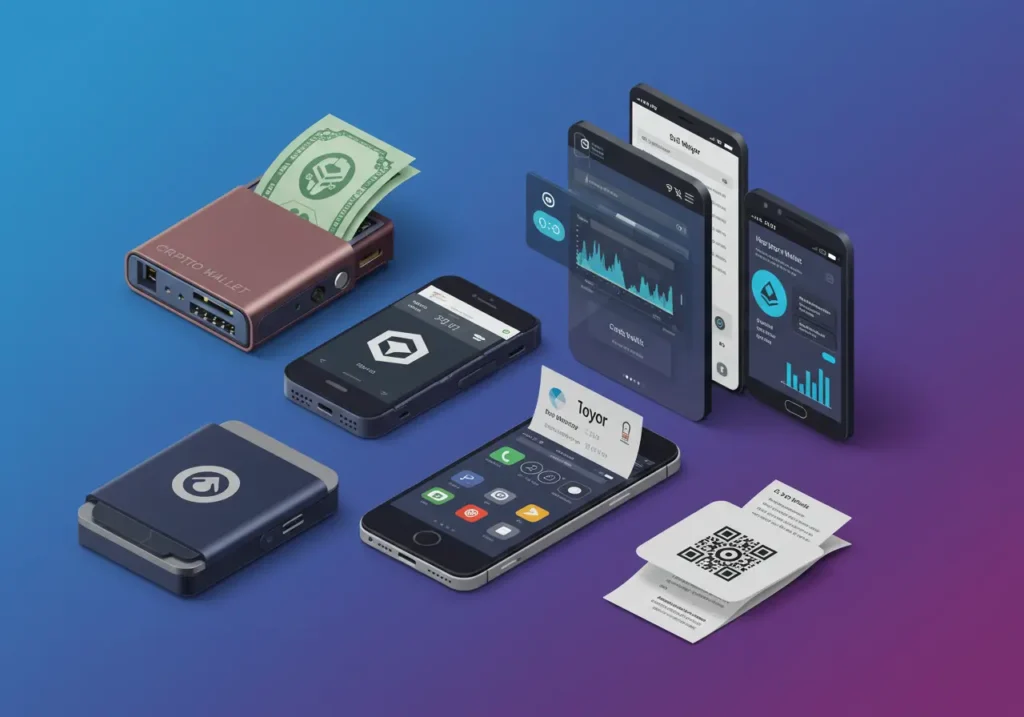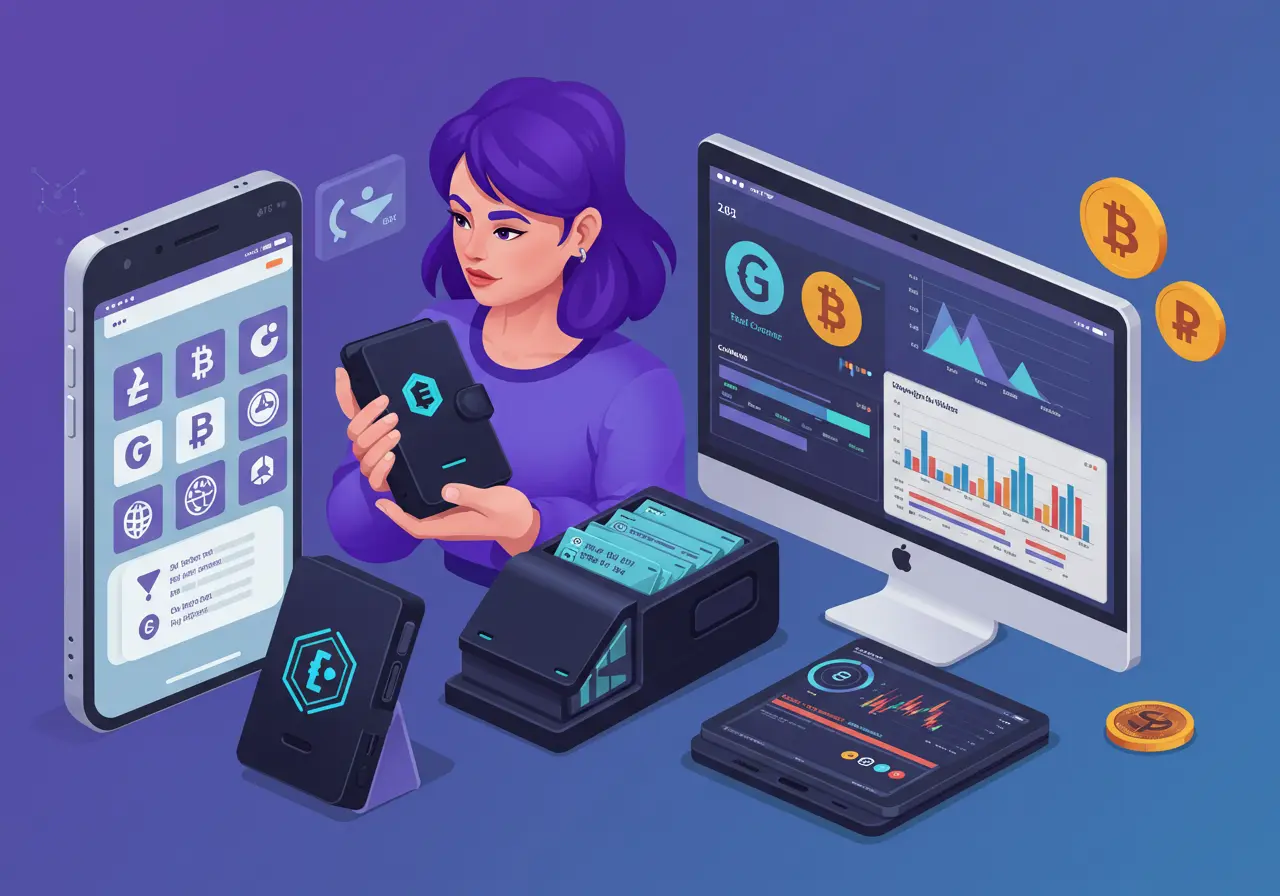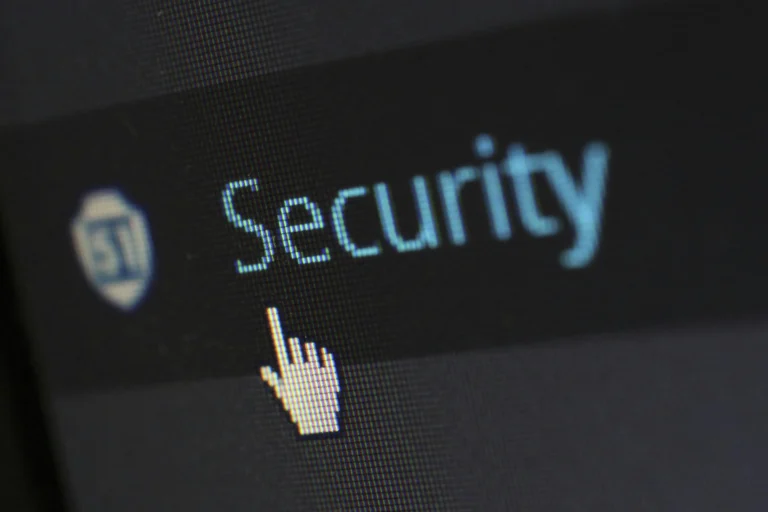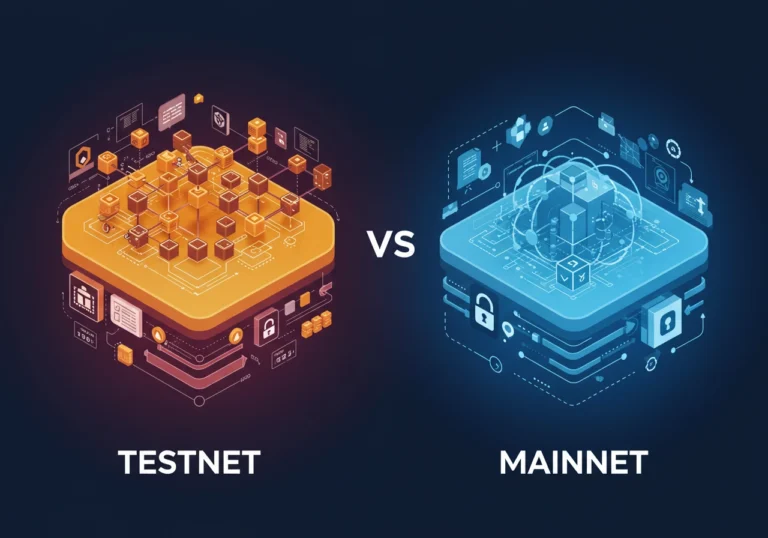Crypto Wallets: Different Types and How They Work
Today we will talk about crypto wallets. Think of them as your digital coin purse. Not a physical thing, but your personal tool to hold keys to your money on the blockchain. Picking the right one? It’s like choosing between a handy fanny pack or a bank vault. Let’s find what works for you.
So What’s a Crypto Wallet Really?

Crypto wallets don’t actually “hold” coins. Your money lives on the blockchain—a giant digital ledger. Your wallet does two jobs:
- Keeps your keys safe (like a password manager for crypto).
- Lets you move money (send/receive, check balances).
Lose those keys? Your money’s locked away forever. That’s why your choice matters. It’s your front door to crypto.
Wallet Types: From Convenient to Super Secure
📱 Hot Wallets: Your On-the-Go Pockets
(Always online = easy but riskier)
- Phone Wallets (Apps):
- What: Apps like Trust Wallet or Exodus on your device.
- Great for: New folks. Small daily amounts.
- Why you’ll like ’em:
- Feels like Venmo for crypto
- Best crypto wallets for altcoins (holds thousands like Dogecoin or Shiba)
- Some let you earn interest (staking feature)
- Watch out: If your phone gets hacked, thieves might grab your crypto.
- My tip: Use these for pocket cash—not your life savings.
- Browser Wallets (Extensions):
- What: Plugins like MetaMask for Chrome.
- Perfect for: Trading, buying NFTs, using crypto apps.
- Perks:
- Works right inside websites
- Built-in exchange functionality (swap coins instantly)
- Risk: Higher hacking chance. Never leave big money here!
- Desktop Wallets:
- What: Software on your computer (e.g., Electrum).
- Good for: Medium holdings; tech-comfy users.
- Upside: Safer than phone or browser options.
- Downside: Computer virus? Wallet could be drained.
🔑 Hot Wallet Rule: Only keep what you’d carry in a real wallet.
❄️ Cold Wallets: Your Crypto Safe
(Offline = max security)
- Hardware Wallets:
- What: Physical gadgets like Ledger or Trezor (looks like a USB stick).
- How they work:
- Keys stay locked inside the device
- Plug it in to approve sends
- Like signing a check inside a vault
- Why they rock:
- Most secure crypto wallets for mobile (when paired with apps)
- Offline storage (sleep easy—hackers can’t touch it)
- Lets you earn interest (staking) or set up multisig (shared control)
- Trade-off: Costs $50-$150. Less handy for quick buys.
- Best for: Your “don’t touch this for years” savings.
- Paper Wallets:
- What: Literally a printed sheet with QR codes.
- Plus: Free. Hack-proof.
- Minus: Easily lost, burned, or soaked. Use ONLY as a backup!
🛡️ Cold Wallet Rule: Anything over $500? Put it here. Trust me.

Picking Your Wallet: Ask These 5 Questions
How to choose a crypto wallet? Grab a coffee and think:
- “How much am I storing?”
- Lunch money? → Phone wallet
- Serious savings? → Hardware wallet
- “What coins do I have?”
- Just Bitcoin? → Simple wallets work fine
- Altcoins like Solana? → Find best crypto wallets for altcoins (Exodus handles most)
- “Want to earn extra coins?”
- Look for wallets with staking feature (Ledger Live or Exodus)
- “Trading or holding long?”
- Daily swaps? → Browser wallet
- Holding years? → Hardware device
- “Sharing access with others?”
- Family or business funds? → Use multisig capabilities (needs 2+ approvals to send)
Handy Features You Might Love
- Instant Swaps: Apps like Exodus let you trade coins inside your wallet—no sending to exchanges!
- NFT Displays: See your digital art in Trust Wallet or MetaMask.
- DApp Access: Jump into blockchain games right from mobile wallets.
- Shared Wallets (Multisig): Like a joint account—great for teams or couples.
Your First Steps
- Test the waters: Download a secure mobile wallet (Trust Wallet). Move $10 in. Play with sending to friends.
- Go cold for savings: Grab a Ledger Nano S ($59). Shift your “important” crypto there.
- BACKUP YOUR WORDS: Engrave them on metal. Hide copies in 2 places.
- Practice recovery: Send $1 to your new wallet → reset it → restore with your words. Worked? Now fill it up.
“Your wallet choice isn’t tech—it’s peace of mind. Pick wisely, guard fiercely.”
Quick Wallet Cheat Sheet
Phone Wallets (e.g., Trust Wallet)
- Best for: Spending cash, altcoins, beginners
- Security: Like carrying cash—keep light
- Bonus: Shows NFTs, earns interest
Browser Wallets (e.g., MetaMask)
- Best for: Traders, NFT collectors
- Security: Like a wallet in your back pocket—watch closely
- Bonus: Swaps coins fast
Hardware Wallets (e.g., Ledger)
- Best for: Long-term savings, heavy hitters
- Security: Like a bank vault—sleep easy
- Bonus: Earns interest, supports multisig
Paper Wallets
- Best for: Emergency backups ONLY
- Security: Strong if hidden well—but fragile
Key Takeaways:
- 🔐 Your recovery words = your crypto. Never share. Never store online.
- 📱 Mobile wallets: Perfect for Ethereum tokens and newbies.
- ❄️ Hardware wallets: Only choice for serious money.
- 🔄 Built-in swaps? Saves time and stress.
- 👥 Sharing control? Multisig keeps everyone honest.
Table of Contents

Hello, I’m Edmilson Dias, founder of CoinBringer. I created this platform to guide people through the fast-moving world of cryptocurrency with clarity and safety. With years of research in blockchain and digital security, my goal is to translate complex topics into practical knowledge, offering reliable tutorials, safety insights, and guidance for both newcomers and experienced users.
Discover more from CoinBringer
Subscribe to get the latest posts sent to your email.







